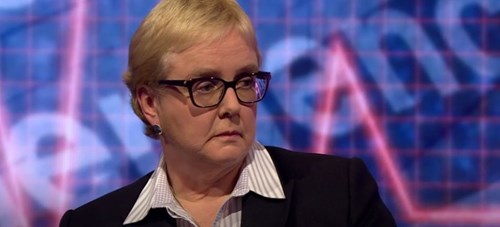Perhaps not surprisingly the interview which stood out for me this week was the one which resulted in a spokesperson being branded a ‘hypocrite’.
The accusation came half-way through a radio interview, but not only did it dominate that exchange, it also ensured newspaper coverage of what otherwise would have received little or no wider media focus.
It came when Conservative MP Neil Carmichael, the chairman of the Commons Education Select Committee, appeared on Talk Radio to discuss his opposition to the Government’s grammar school plans.
What had been a fairly routine interview - which you can find here - became a memorable encounter when host Julia Hartley-Brewer asked the MP, who had started by saying selective schools ‘do little to help social mobility’, why he sent his own children to them and ultimately accused him of being a ‘hypocrite’.
But could this damaging outcome have been avoided?
Open
It is difficult to believe that Mr Carmichael was not aware of his own vulnerabilities in this interview or that where he had sent his own children to school was likely to be a question.
And with that in mind, he would have been much better served to have been open and honest at the start of the interview about where his kids had been educated.
Saying something along the lines of ‘I should say at the start that my own children went to grammar schools’ and explaining why he felt that was the best option in his area at the time.
It is similar to breaking your own bad news during a crisis media management situation – it is much better to be proactive and address a potential negative yourself than to hope a journalist does not pursue a particular line of questioning which may expose it.
It appears less defensive, more transparent and poses less of a threat to your message.
Ill prepared
Mr Carmichael obviouslydid not choose the open approach outlined above. But neither did he seem to have done any preparation on how to answer the question should it come up.
When he was first asked why he sent his children to grammar schools, he said: “Because we had a system in Gloucestershire where that was appropriate.” Not a strong response and it allowed Ms Hartley-Brewer to continue probing and pursuing the subject.
And the responses didn’t get any better, as he later went on to say the decision was made because the family lived between two grammar schools.
He then went on to get himself in a complete muddle over whether it was right his own children had sat the ‘terribly unfair’ 11-plus entrance exam.
Didn’t move the subject on
There’s no doubt this became an increasingly difficult interview for Mr Carmichael, but he could and should have done more to try to move the question on by using media training techniques.
Instead, the interview became increasingly tetchy with the Stroud MP facing increasing numbers of questions about his education choices for his own children rather than the subject he had come on to the programme to discuss.
It became a quick fire question and answer session and Mr Carmichael had lost all control.
Knowing the reporter / station
On our media training courses, we regularly remind delegates about the importance of ensuring they have done their research on the journalist and the organisation they work for ahead of interviews.
Ms Hartley-Brewer is a journalist known for strong opinions and for grilling interviewees and some research would have shown Mr Carmichael he may face a difficult time and needed to be ready for tough, personal questions. It may have also convinced him this was not the right interview opportunity.
The fact Talk Radio describes itself as a station ‘driven by its personality and personalities’ and adds ‘presenters are not afraid to speak their minds’ gives a guide as to what to expect.
It is worth pointing out the Mr Carmichael avoided repeating the ‘hypocrisy’ allegation in his responses and that he stayed relatively calm throughout his interview ordeal. But the damage was done. Here’s how a few newspapers reported on it:
‘You hypocrite!’ Senior Tory MP Neil Carmichael is slammed for opposing Theresa May’s plans for more grammars despite sending his children to selective schools’ Daily Mail
Tory MP opposed to selective education admits sending his children to grammar schools’ The Telegraph
Radio host savages MP who’s opposed to grammar schools – but sends his kids to one Daily Express
On a more positive note, there was one interview which stood out for all the right reasons this week - Dame Julie Moore, the Chief Executive of University Hospitals Birmingham NHS Foundation Trust, appearing on Newsnight to discuss the NHS crisis.
Dame Julie appeared open and honest throughout and if you exclude the use of ‘pathway’ was free of the jargon which can creep into NHS interviews.
Importantly she also sounded human and exuded warmth by using emotion in her answers. For example, she said: “It breaks my heart to see an elderly couple being separated because this society cannot provide a facility to allow a married couple to be together – that is not correct and not right at all.”
She also supported her responses with relatable examples which showed her talking to patients.
She said: “I talked to a lady in A&E this morning who said ‘I rang my GP and couldn’t get an appointment for over three weeks, so I came in here – I know I shouldn’t’”
A great performance.
Media First are media and communications training specialists with over 30 years of experience. We have a team of trainers, each with decades of experience working as journalists, presenters, communications coaches and media trainers.
Click here to find out more about our highly practical Media training and crisis communication courses.
Subscribe here to be among the first to receive our blogs.



